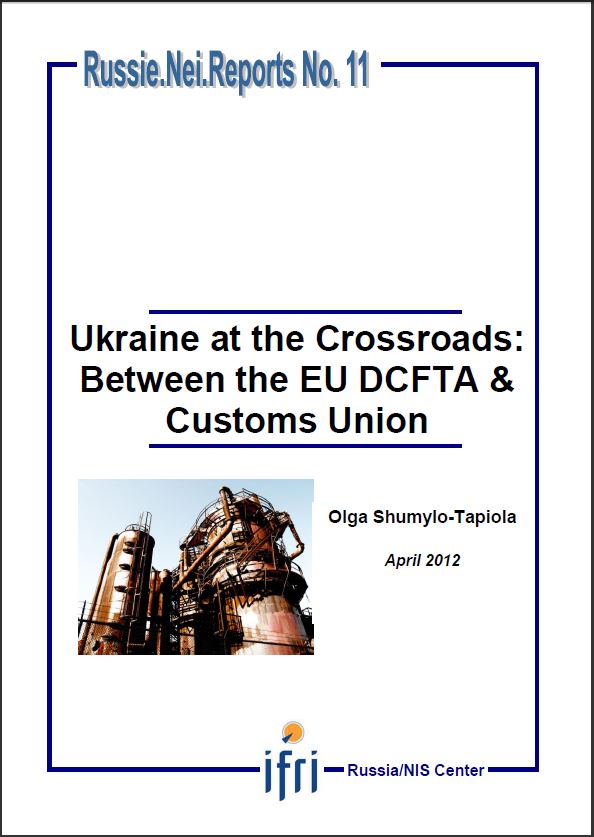Ukraine at the Crossroads: Between the EU DCFTA and Customs Union

After serious decline in the 1990s, Ukraine's economy finally started its recovery and systemic reform in early 2000. While the economy rapidly grew by 2008, its transformation remained unfinished. Ukraine has three possible roads to development.
The first, and least probable, is to stay on its own. The second, and currently most feasible, is to sign an Association Agreement (AA) with the EU that includes a Deep and Comprehensive Free Trade Agreement (DCFTA). The third, and most controversial, choice is to join the Customs Union with Russia, Belarus and Kazakhstan and embark on further Moscow-led integration projects.
Negotiations with the EU are now finalized: the agreement was finally initialed at the end of March 2012. However, further steps, such as signing and ratification of the agreement depend on the Ukrainian side. Ukraine's leadership has repeatedly confirmed the country's interest in signing and ratifying the Association Agreement with the EU. Meanwhile, Russia's invitation to join the Customs Union has been consistently, but politely declined. However, many Western and Russian observers still question the irreversibility and credibility of this decision.
An earlier version of this paper was presented at a conference organized by Ifri in the framework of the Eurasian Trade Task Force (ETTF), 17 October 2011. The ETTF addresses the different commercial and economic integration projects in Eurasia and their impact on domestic and foreign policies of the states concerned.

Available in:
Regions and themes
ISBN / ISSN
Share
Download the full analysis
This page contains only a summary of our work. If you would like to have access to all the information from our research on the subject, you can download the full version in PDF format.
Ukraine at the Crossroads: Between the EU DCFTA and Customs Union
Related centers and programs
Discover our other research centers and programsFind out more
Discover all our analysesThe Caspian Sea as an Emerging Energy Hub : Potentials and Limitations
This report analyzes the prospects of the Caspian Sea region — and its key actors except for Russia and Iran — becoming an important energy hub serving the needs of the European Union (EU).
The European Union's Strategic Test in Georgia
The political crisis brewing in Georgia is of an existential nature for the country. What is at stake is Georgia's future as a democratic and sovereign European nation (EU).
Commanders of Putin's Long War: Purged, Reshuffled and Disgruntled
The trend of reshuffling the Russian top military command in the course of a fast-evolving and far from successful war has progressed unevenly both across the Armed Forces’ structures and in time. The rationale for and timing of the abrupt cadre decisions made by Commander-in-Chief Putin often defy logical explanation, and the rare official clarifications are no more informative than the usual information blackout.
Russian Military Manpower After Two and a Half Years of War in Ukraine
In addition to a military victory in Ukraine, the Russian leadership is planning to build up sizable troop formations for a possible conflict with NATO in the Baltic region and the Kola Peninsula. In particular, current plans aim for the military manpower to grow by about 350,000, reaching a total of 1.5 million soldiers and commanders. In the context of the current conflict in Ukraine, this cannot be accomplished without a new wave of mass mobilization.








